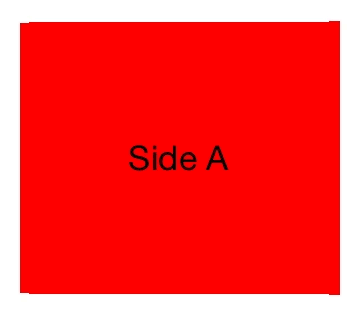UIView vertical flip animation
I have an iOS UIView with UIViewAnimationTransitionFlipFromRight. I need it to flip vertically though. The page curl transition won\'t cut it. I assume this wil
-
Swift 4.0 Version 100% Working Solution
// view1: represents view which should be hidden and from which we are starting // view2: represents view which is second view or behind of view1 // isReverse: default if false, but if we need reverse animation we pass true and it // will Flip from Left func flipTransition (with view1: UIView, view2: UIView, isReverse: Bool = false) { var transitionOptions = UIViewAnimationOptions() transitionOptions = isReverse ? [.transitionFlipFromLeft] : [.transitionFlipFromRight] // options for transition // animation durations are equal so while first will finish, second will start // below example could be done also using completion block. UIView.transition(with: view1, duration: 1.5, options: transitionOptions, animations: { view1.isHidden = true }) UIView.transition(with: view2, duration: 1.5, options: transitionOptions, animations: { view2.isHidden = false }) }Call of the function:
anim.flipTransition(with: viewOne, view2: viewTwo) anim.flipTransition(with: viewTwo, view2: viewOne, isReverse: true)Best practice will be to create
UIViewextension and hold this function to that extension so it will be accessible to anyUIViewchild object. This solution also can be written using completionBlock.讨论(0) -
UIViewAnimationOptionTransitionFlipFromTop is easy to use, but we can not create an interactive transition using UIViewAnimationOptionTransitionFlipFromTop. We need change layer’s transform to create an interactive transition.
Just create a transform using CATransform3DMakeRotation is not enough, no light effect, no perspective. I write an sample to add these effect. You can change it to an interactive transition easily.
Demo:

Sample code:
CALayer *sideALayer = sideAView.layer; CALayer *sideBLayer = sideBView.layer; CALayer *containerLayer = containerView.layer; sideALayer.opacity = 1; sideBLayer.opacity = 0; sideBLayer.transform = CATransform3DMakeRotation(M_PI, 0, 1, 0); containerLayer.transform = CATransform3DIdentity; CATransform3D perspectiveTransform = CATransform3DIdentity; perspectiveTransform.m34 = -1.0 / containerViewWidth; [UIView animateKeyframesWithDuration:1 delay:0 options:UIViewKeyframeAnimationOptionCalculationModeLinear animations:^{ [UIView addKeyframeWithRelativeStartTime:0 relativeDuration:0.5 animations:^{ sideALayer.opacity = 0; containerLayer.transform = CATransform3DConcat(perspectiveTransform,CATransform3DMakeRotation(M_PI_2, 0, 1, 0)); }]; [UIView addKeyframeWithRelativeStartTime:0.5 relativeDuration:0.5 animations:^{ sideBLayer.opacity = 1; containerLayer.transform = CATransform3DConcat(perspectiveTransform, CATransform3DMakeRotation(M_PI, 0, 1, 0)); }]; } completion:nil];sideAView and sideBView are subviews of containerView.
The containerView is set a black background.
讨论(0)
- 热议问题

 加载中...
加载中...